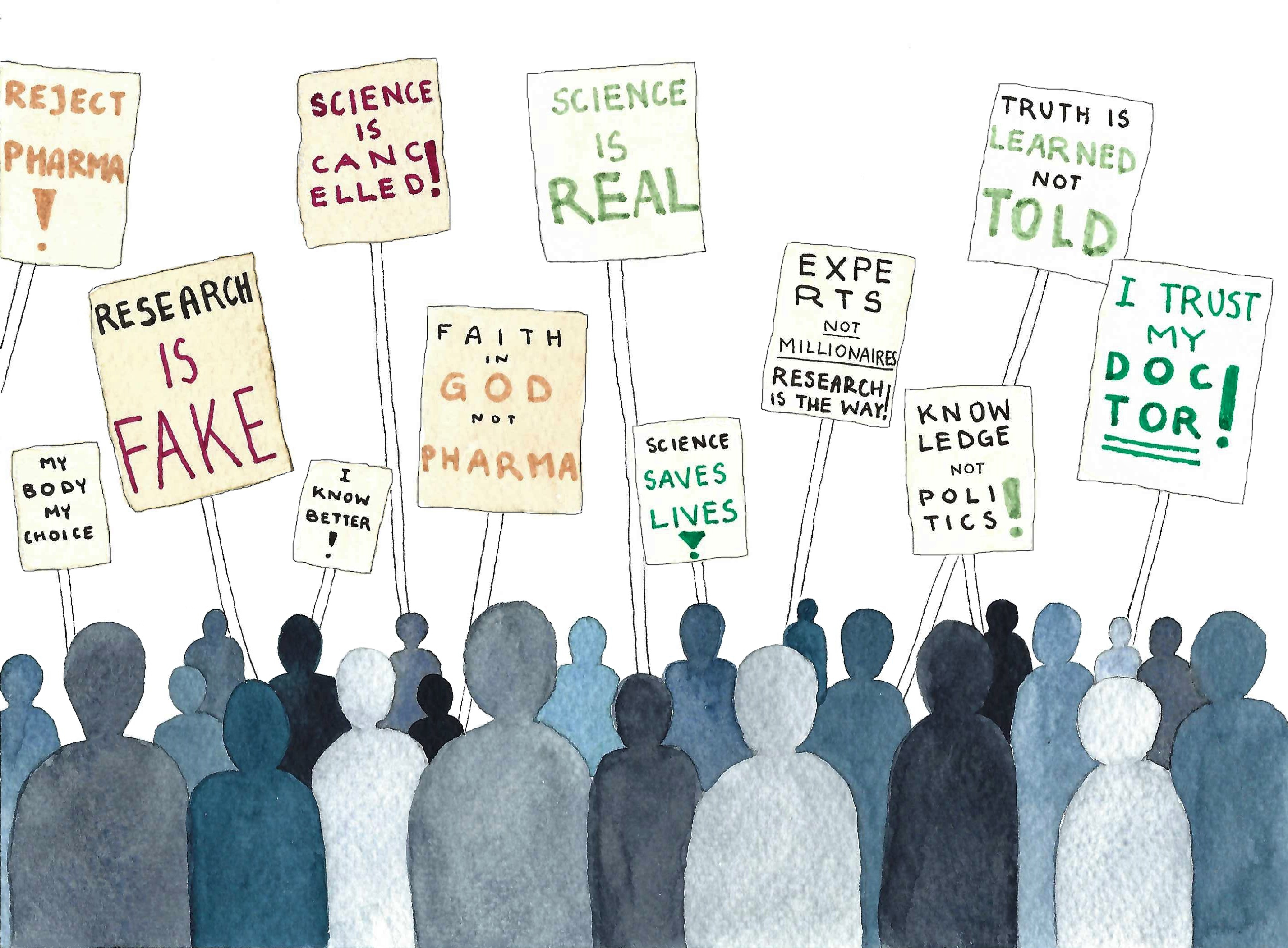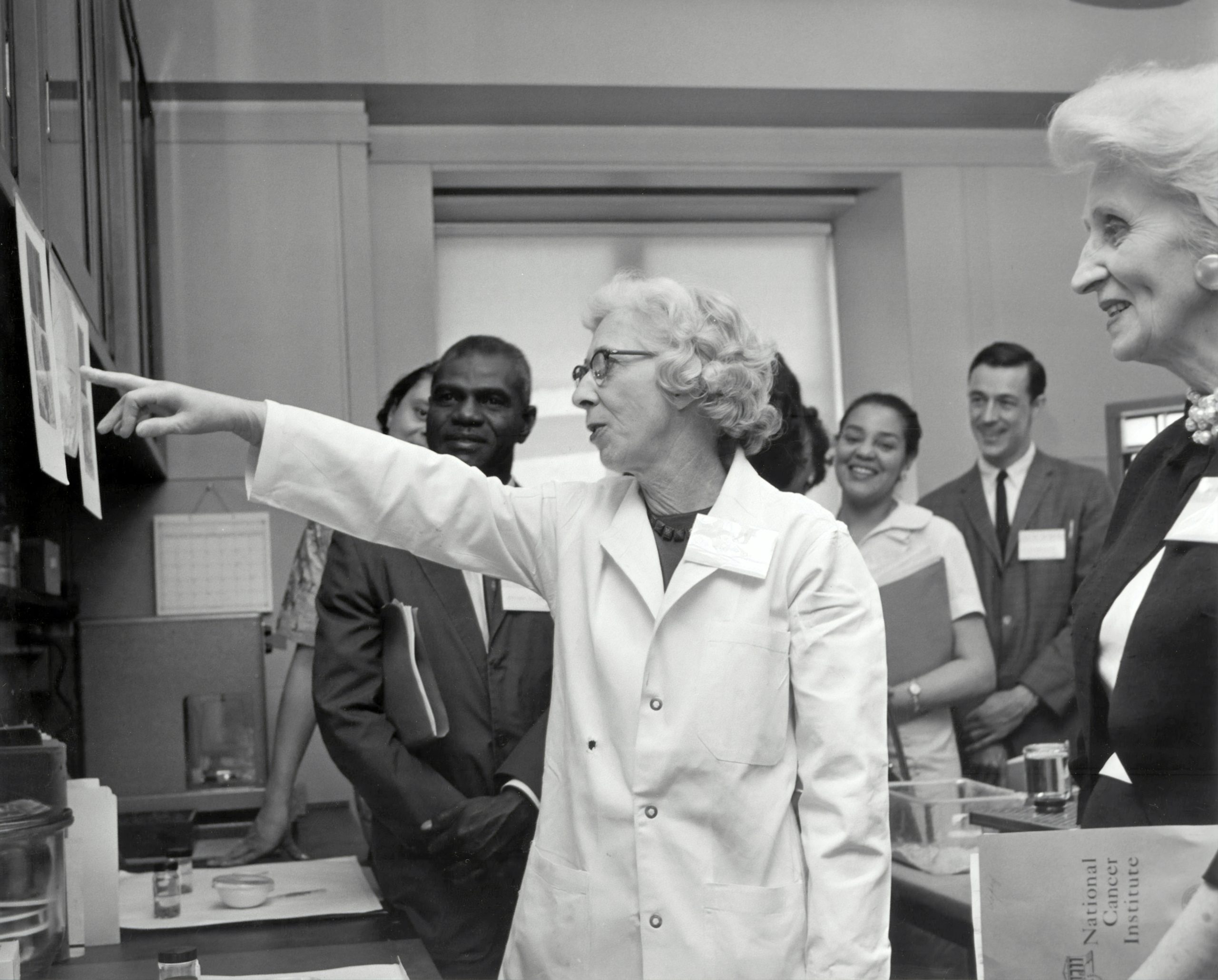At the time of writing, a search for Covid-19 in the medical publications database PubMed returns over 16,000 papers. There has been an exponential increase in scientific study of the novel coronavirus, and its associated disease Covid-19, since the start of the outbreak. And with it, a surge in appearance of scientists on our television screens as we turn to experts to help make sense of it all. This global pandemic has undoubtedly highlighted the importance of scientific research and development and it is a moment of huge opportunity to strengthen public trust in science.
Science in the public eye
The work of scientists is dominating the headlines and has provided great hope for a solution to this crisis. Biomedical scientists are working around the clock on vaccines and antivirals, immunologists on understanding our immune system’s response to the virus, and epidemiologists on how best to model its spread. Science has never been more relevant, and its raised profile has great potential to increase public enthusiasm and respect for it.
Incredible scientific feats have been achieved in response to the pandemic. But the constant stream of new information is extremely overwhelming, so clear and accurate communication of scientific findings and advice has never been more important. Governments and the media have a huge part to play in this and familiar graphics like the crowds of stickmen illustrating disease spread and the importance of social distancing have succeeded in doing so clearly and accessibly.

The coronavirus has also been a catalyst in bridging the disconnect between scientists and the public, with growing numbers of scientists taking to podcasts, blogs, and social media to share their research, and we have never been more eager to engage. In Germany, the podcast ‘Das Coronavirus-Update’ by leading virologist Dr Christian Drosten, covering the latest in coronavirus research, has been top of the iTunes podcast charts since its February release1.
Following ‘the’ science
It is central in science to provide honest communication about what is not known, especially in a situation as fast-moving as a pandemic. We are following the science has become a mantra of the UK government’s daily briefings. And while policy decisions in this pandemic should by all means be evidence-driven, leading scientists have expressed concern at the constant use of this line. Nobel prize winner and president of the Royal Society, Dr Venki Ramakrishnan, explains “there is often no such thing as following ‘the’ science. Science at the frontiers is always uncertain.”2
Re-evaluation of ideas when presented with new evidence is a crucial part of the scientific method and policy-makers must therefore also be prepared to re-evaluate
This is not just a case of semantics, ‘the’ science, implies a single scientific consensus, which so early in our understanding of the novel coronavirus and Covid-19 is simply not the case. Science is an ever-changing, iterative process. Sometimes new evidence will emerge, and previous ideas will turn out to be wrong. But governments still have to make decisions, and ministers must weigh up the current available evidence presented to them together with economic and political factors. Constant assertion of following the science could focus the blame on science alone when policy mistakes are made. Indeed Sir David King, a former chief scientific adviser, says he is “a little worried the ministers are setting the scientists up to be the fall guys.”3
Re-evaluation of ideas when presented with new evidence is a crucial part of the scientific method and policy-makers must therefore also be prepared to re-evaluate. Being honest about this uncertainty while giving clear advice is a tricky balance to tread but is crucial to maintaining trust, in both policy decisions, and in science.
Navigating conspiracies and antivax
The importance of clear and accurate science communication is made even more urgent by the disturbing rise in misinformation about the virus and how to treat it. Some world leaders (most notably US President Trump and Brazilian President Bolsonaro) have track records of rejecting scientific advice and spreading misinformation. Indeed, both have disregarded social-distancing recommendations and promoted unproven treatments amid the coronavirus crisis. This has been met with widespread criticism, and even Fox news, a channel notoriously supportive of Trump, had to issue a warning when he suggested injecting disinfectant to combat the virus4. And Facebook and Twitter, in line with new policies to take down potentially harmful misinformation, removed videos of President Bolsonaro falsely claiming hydroxycholoroquine and on another occasion a “natural brew” as effective treatments against Covid-195,6.
Even putting problematic presidents aside, the rise in conspiracy theories remains a pressing issue. This becomes especially alarming as we move towards developing a vaccine. A global vaccination programme relies on public trust in science and anti-vaccination campaigns could disrupt our best hope of beating the virus. In France, 33% of people were found, in a 2018 survey by the Wellcome Trust7 to disagree with the statement “vaccines are safe”. And in the US, anti-Covid vaccination protests have begun before one has even become available8.
A global vaccination programme relies on public trust in science and anti-vaccination campaigns could disrupt our best hope of beating the virus
Despite this, there could be no better proof of concept that vaccines are essential than our current situation. Indeed, living through the dire reality of a pandemic without a vaccine could persuade previous sceptics of their importance. Anti-vaccination attitudes are very much a Western problem7, perhaps due to lack of exposure to outbreaks in recent years, as major outbreaks such as SARS and MERS have been mainly restricted to Asia and the Middle East. The massive restrictions on our usual way of life and shocking global death toll as a result of not having one vaccine will hopefully change the attitudes of antivaxxers. That together with clear communication about the development process – which ensures rigorous evaluation of vaccine safety before release to the public.
Sink or swim?
Coronavirus has raised the public profile of science and placed a spotlight on the importance of clear and accurate scientific communication. This together with transparency in science, on the scientific method, and vaccine and drug development process, will be crucial to maintain public trust in science as we move out of this pandemic and into the future.
Sources and further reading
Title image by Dominika Syska
1http://www.itunescharts.net/ger/
https://www.economist.com/europe/2020/04/30/christian-drosten-germanys-covid-19-explainer-in-chief
2https://royalsociety.org/blog/2020/05/following-the-science/
4https://video.foxnews.com/v/6151829981001#sp=show-clips
5https://www.bbc.co.uk/news/technology-52106321
https://www.nature.com/articles/d41586-020-01506-2
7https://wellcome.ac.uk/reports/wellcome-global-monitor/2018/chapter-5-attitudes-vaccines
8https://www.nytimes.com/2020/05/02/us/anti-vaxxers-coronavirus-protests.html





